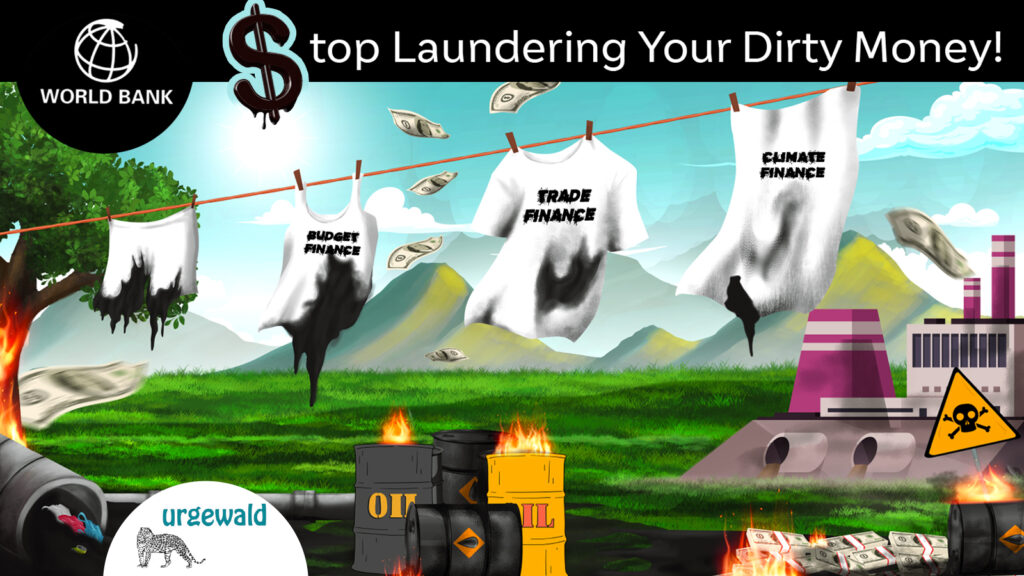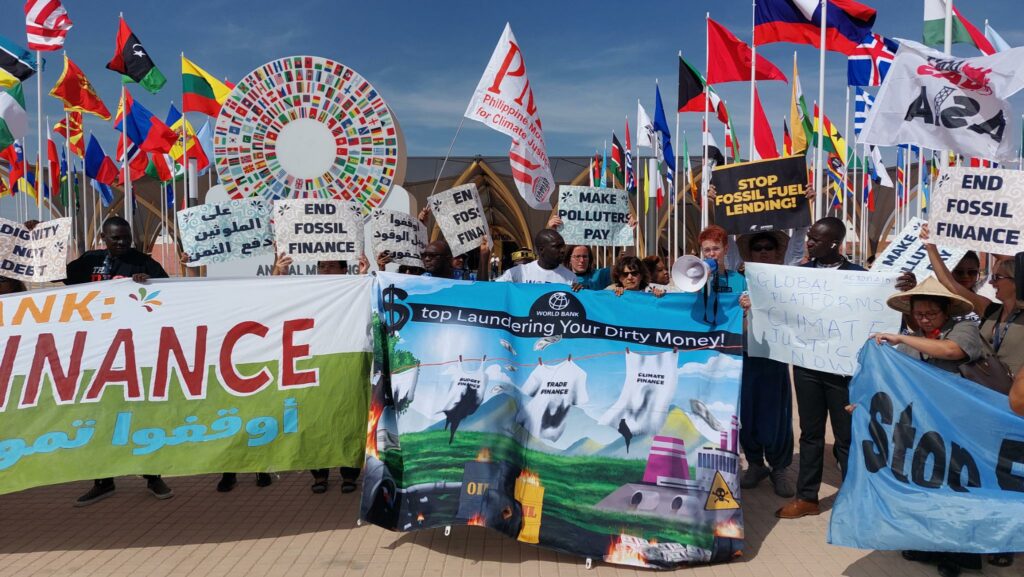
The World Bank’s Annual Meeting (October 9–15, 2023) was accompanied by numerous protests and civil society events. No protests were allowed on the conference grounds themselves. Even the designated demonstration area in front of it was closely watched by many security guards.
It did not help the proceedings that Marrakech had been hit by a very severe earthquake in the run-up to the conference. Nevertheless, the Moroccan government did not want to let the conference fall through after the long preparations.
Lack of self-awareness: Economic growth and a bigger bank are more important than anything
The results of the conference are sobering. Although many of our supporters inside and outside the World Bank are working hard to make it accountable and to ensure greater transparency, after Marrakech one cannot help but fear that the World Bank reform will exacerbate the problems which Urgewald and partners have long criticized.
The newly minted president, Ajay Banga, has taken charge. He knows how to convince people of his vision of a bigger and better bank. Unfortunately, his focus has been almost exclusively on “the bigger bank”. We are still a long way from the “better bank” in terms of human rights and the environment. We at Urgewald do not see the World Bank moving away from fossil fuels in line with the Paris Agreement. We strongly criticize the fact that fossil fuels continue to be promoted through indirect financing instruments.
Banga is a persuasive leader. Therefore, civil society must argue even more precisely and present overwhelming evidence of the bank’s misconduct. Otherwise, there is a risk that Banga will transform the World Bank into an institution that massively promotes privatization and financialization. The risks are borne primarily by the people in the project countries. Those people will not be helped if the bank also wants to tighten environmental and social (E&S) standards, increase the volume of lending, accelerate disbursement, and delegate loan approvals to management. Furthermore, the review processes for the environmental and social standards of both the International Bank for Reconstruction and Development/International Development Organization and the International Finance Corporation/Multilateral Investment Guarantee Agency are on the agenda for next year.
The World Bank’s energy policy is the most disappointing. Banga’s statements that the bank no longer finances coal and has a very small share in oil and gas overall are a mockery for all those who publish case studies and portfolio analyses that prove the opposite. Urgewald is still waiting for a statement from the bank regarding our study on trade finance. We will maintain the pressure here and we criticized these financing instruments on World Bank Action Day. The World Bank must stop laundering its dirty money through climate, trade and budget finance.
The World Bank’s approach to implementing the Paris Agreement on climate change remains a bad joke. However, Banga announced that the World Bank will disclose at this year’s COP28 in Dubai how he intends to measure its progress in climate policy in the future. One can only hope that President Banga will finally increase the transparency of financing instruments and improve the quality of the data already provided as part of one of digitization, one of his five pillars for reforming the bank.
